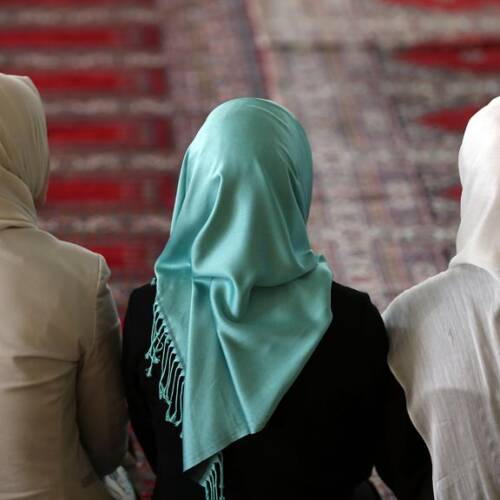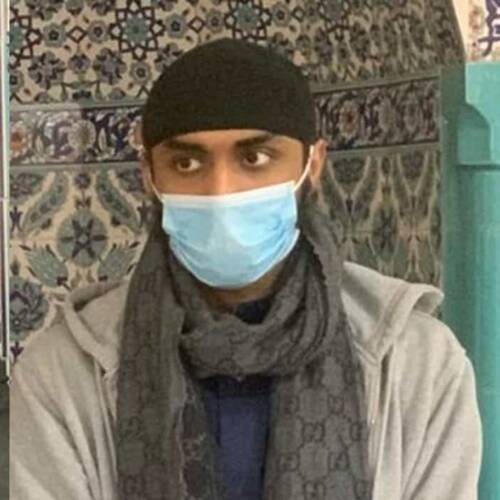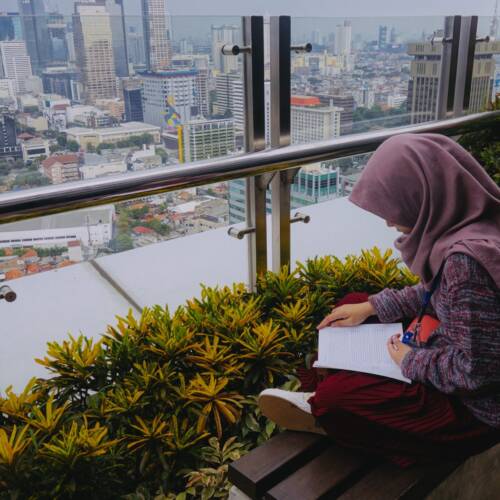
Working Muslim Women Disproportionately Affected by COVID-19
08 Dec 2020This article is part of a 2-part series that will be published on Urban Muslimz, looking at the findings of surveys and research conducted by several Muslim organisations in the UK.
Amidst all of the pressure that is usually placed on women, Muslim Women have suffered disproportionately from work loss and similar impacts due to the coronavirus pandemic. These are the findings of the Muslim Census, which recently released its report on the financial impacts of the COVID-19 crisis on the Muslim community.
The organisation, which surveyed 522 Muslim women, found that more than one in four Muslim women had their ability to work impacted due to additional caring responsibilities that resulted from the COVID-19 crisis.
The report warns that women, especially women of ethnic minority backgrounds, were consistently worse off financially, making up a significant portion of the population that suffered job losses and other restrictions.
It called for increased charitable support to such vulnerable groups as well as for the creation of employability programmes.
Survey Findings
Over the course of August, the Muslim Census surveyed 1000 Muslims, 52% of whom were female, and 48% of whom were male. The majority of the participants were from London (59%) while the rest were distributed around the UK.
It found that a significant majority of Muslims, by 70%, have had their household expenses increase and that the community as falling into poverty at a rate ten times higher than the UK-wide estimations.
However, the impacts became increasingly disproportionate when the sample was narrowed down to women. The report on women found that over a quarter of Muslim women, at about 27%, ended up having additional caring responsibilities. The closure of schools meant that children were at home, leaving women to take care of them.
This stands in stark contrast to men, only 15% of whom said they found themselves facing increased caring responsibilities.
The women who responded to the survey also said the increased caring responsibilities had made it much harder for them to find work or apply for work. Even those that retained their jobs, however, struggled to work from home while also looking after children.
The findings of Baroness Doreen Lawrence support the picture painted by the survey.
In a recently-published report issued by the Labour Party, it was found that ethnic minorities were simultaneously overexposed to the coronavirus; faced barriers in getting appropriate healthcare, and were scapegoated for the spread of the virus.
“The impact of Covid is not random, but foreseeable and inevitable, the consequence of decades of structural injustice, inequality and discrimination that blights our society,” said the report.
The Crisis Has Worsened the Economic Pressures Women Face
The surveys also found that job losses among Muslim women are some of the highest in the country. Although the Muslim community, as a whole, has six times more job losses compared to the national average, the number goes even higher when one looks at the job losses among Muslim women.
The Muslim Census suggested that the increased pressures are due to many women working in the retail, travel and hospitality sectors, all of whom have been hit heavily by the pandemic. It is estimated that the sector lost 700,000 jobs, leaving many Muslim women in a difficult financial situation.
The Muslim Census has called for awareness to be raised on matters facing Muslim women. They voiced support for charitable programmes such as Zakat donations.
The group also calls for employability programmes to specifically target Muslim women so that they can find jobs in more secure sectors.
Despite coming out of a second lockdown, the effects of the covid-19 pandemic are still unfolding. Will there be anything done to help many of these Muslim women who have been impacted by the pandemic? What responsibility does the government share in finding a solution, and what responsibility lies upon us to help our sisters?
The second article of this series will focus on the broader findings of the implications of COVID-19 on British Muslim Community.















